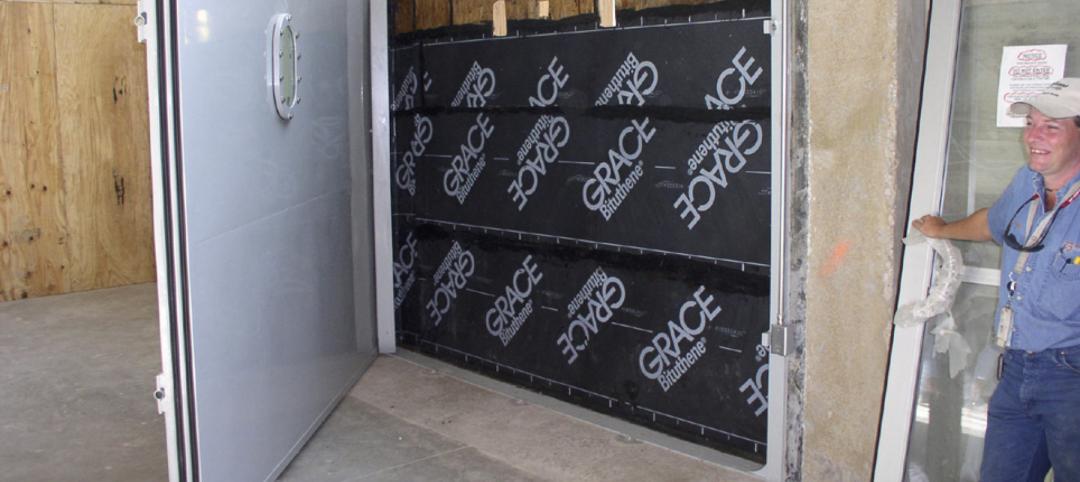International design and architecture firm Perkins Eastman recently announced the publication of its 2017 Survey on The State of Senior Living: “An Industry in Transition.” For this, the third in a series of industry surveys conducted by Perkins Eastman Research, led by Associate and Senior Design Researcher Emily Chmielewski EDAC, nearly 200 respondents from mostly not-for-profit life plan communities share their expertise and insights on five key issues that “keep them up at night”: Baby Boomer expectations, healthcare reform, staff recruitment and retention, for-profit competitive growth, and the needs of middle-income residents.
Some of the respondents’ feedback for “An Industry in Transition” was recorded at the 2016 LeadingAge Conference in Indianapolis, conducted at Perkins Eastman’s exhibition booth, in which a random sampling of senior living providers—mostly from the not-for-profit sector—volunteered to answer an on-the-spot survey question about the key issues facing the industry.
Further survey results and feedback revealed that, among the key focus areas being examined, staff recruitment and retention was the #1 concern among respondents. On this topic, many of those surveyed expressed unease toward how wages significantly outpaced job empowerment, benefits, and/or training, while as many as one in three respondents cited recent improvements in recruitment and retention with the help of job role empowerment interventions. Boomer expectations and healthcare reform were close seconds in terms of respondents’ chief concerns for their respective communities and the industry at large going forward.
The first two State of Senior Living surveys conducted by Perkins Eastman Research were published in 2009/10, in the immediate wake of the Great Recession, and in 2015, which was sub-titled “An Industry Poised for Change.” The reason for the relatively brief turnaround time between the second and third surveys has to do strategic alliances, in particular the expressed importance of partnering with healthcare providers. According to the Survey’s authors, “Our 2015 survey saw a remarkable gap between the current alignment with healthcare systems (29% had no relationship) and their belief that an alignment was in the future (74%). What a difference two years makes! Models involving strategic alliance, partnerships and primary referrals all saw significant growth” during this time.
As a rapidly aging Boomer population reevaluates its priorities going forward, and senior living models readjust to accommodate greater demand for everything from urban settings and intergenerational apartment environments to a la carte services for middle-income residents, the 2017 survey’s findings strongly indicate that strategic partnerships with healthcare systems is on the increase industry-wide. “Given some of the shifts in concerns and priorities, we believe [this latest] survey does speak for an industry already in transition and not just poised for change.”
“An Industry in Transition” is available for free download here.
Related Stories
Industry Research | Mar 3, 2022
AIA awards research grants to advance climate action
The American Institute of Architects (AIA) Upjohn Research Initiative is providing up to $30,000 to five research projects that will advance sustainability in architecture.
Industry Research | Mar 2, 2022
31 percent of telehealth visits result in a physical office visit
With little choice but to adopt virtual care options due to pandemic restrictions and interactions, telehealth adoption soared as patients sought convenience and more efficient care options.
Codes and Standards | Mar 1, 2022
Engineering Business Sentiment study finds optimism despite growing economic concerns
The ACEC Research Institute found widespread optimism among engineering firm executives in its second quarterly Engineering Business Sentiment study.
Multifamily Housing | Sep 1, 2021
Top 10 outdoor amenities at multifamily housing developments for 2021
Fire pits, lounge areas, and covered parking are the most common outdoor amenities at multifamily housing developments, according to new research from Multifamily Design+Construction.
Industry Research | Aug 19, 2021
BD+C Market Intelligence Reports
Exclusive research, data, and trends reports from the editors of Building Design+Construction.
Resiliency | Aug 19, 2021
White paper outlines cost-effective flood protection approaches for building owners
A new white paper from Walter P Moore offers an in-depth review of the flood protection process and proven approaches.
Multifamily Housing | Jul 7, 2021
Make sure to get your multifamily amenities mix right
One of the hardest decisions multifamily developers and their design teams have to make is what mix of amenities they’re going to put into each project. A lot of squiggly factors go into that decision: the type of community, the geographic market, local recreation preferences, climate/weather conditions, physical parameters, and of course the budget. The permutations are mind-boggling.
Digital Twin | May 24, 2021
Digital twin’s value propositions for the built environment, explained
Ernst & Young’s white paper makes its cases for the technology’s myriad benefits.
Industry Research | May 20, 2021
Latest ULI report forecasts robust real estate rebound
It’s going to take some time, though, for the office sector to recover
Industry Research | Apr 9, 2021
BD+C exclusive research: What building owners want from AEC firms
BD+C’s first-ever owners’ survey finds them focused on improving buildings’ performance for higher investment returns.

















